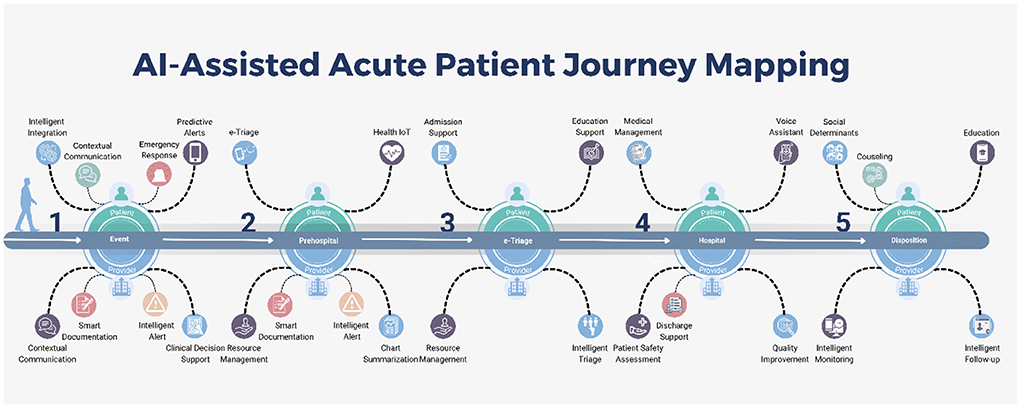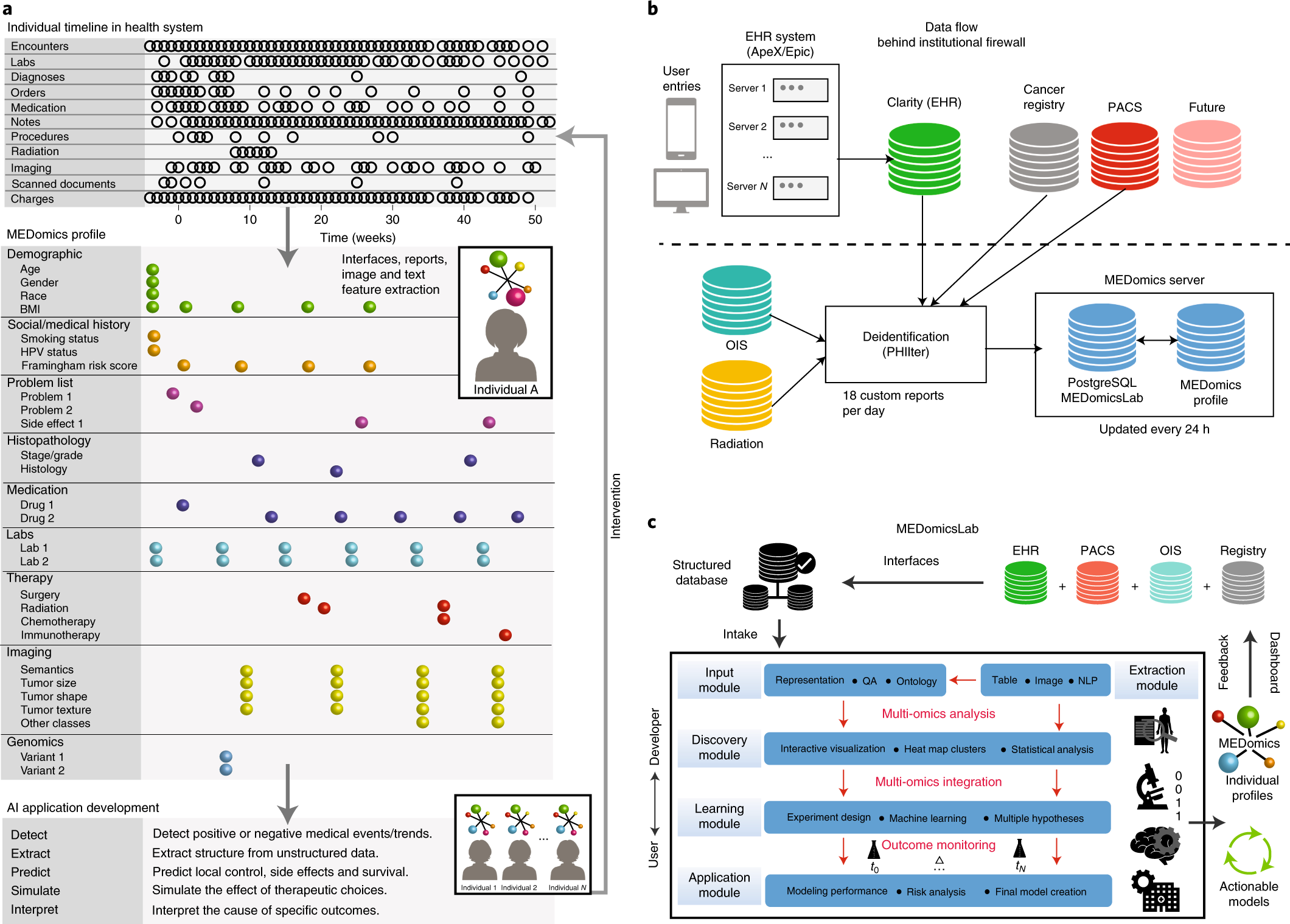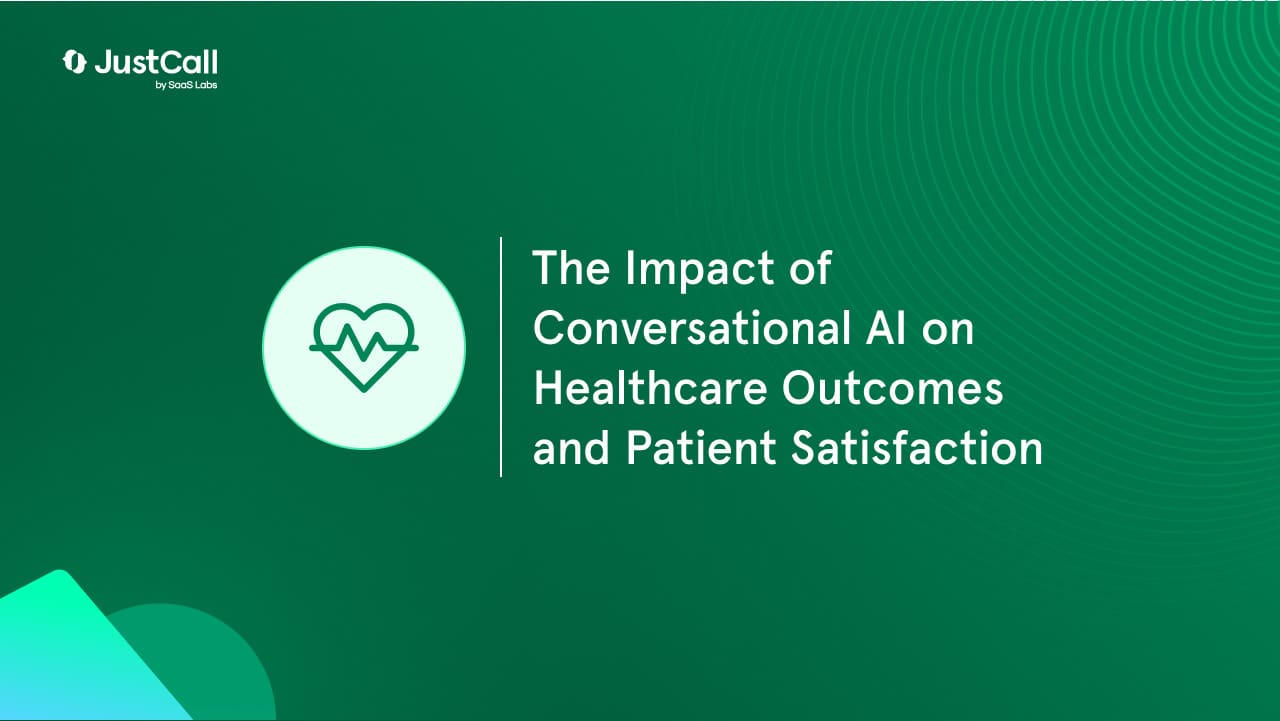The digital revolution has left an imprint on the healthcare industry as well. The sector, which experienced significant upheaval in the last few years, has also discovered the value proposition and potential of emerging technologies. As a result, we are witnessing the technological integration of Big Data, Artificial Intelligence, Machine Learning, the Internet of Things, etc., with healthcare.
Here, we talk about the impact of artificial intelligence on healthcare – more specifically, from a conversational AI angle.
What is Conversational AI in Healthcare?
Conversational AI is an application of Artificial Intelligence (AI) and allied technologies like Natural Language Processing (NLP) and Machine Learning (ML). This multi-tech blend can prove valuable in healthcare by conducting natural-sounding, informative, interactive, and empathetic conversations.
Such meaningful dialog can engage and empower patients, healthcare professionals, and caregivers alike. As such, one can typically find healthcare interfaces with conversational AI applications like virtual health assistants, chatbots, voice assistants, etc.
In the subsequent sections, we’ll take a look at the impact of artificial intelligence on medicine and healthcare.
Impact of Conversational AI on Healthcare
Now that you understand the role of conversational AI in healthcare, it is time to understand its impact. The following is a top-level view of the implications of conversational AI in healthcare:
- Improve diagnostic accuracy: Conversational AI systems can analyze patient data, collect symptoms, identify patterns, and more. Such data-driven capabilities enable it to play a supporting role in aiding healthcare professionals while performing diagnosis.
- Efficient decision-making: Apart from expediting diagnosis, conversational AI can also draw real-time insights from the latest clinical guidelines, medical literature, and ongoing trials to chart out the best patient care plan.
- Increase patient engagement: Conversational AI can personalize healthcare by offering contextual and relevant health information, timely support, and even infusing the treatment plan with self-care management. Such refinement in healthcare will enhance patient engagement and involvement.
- Scalable healthcare: Conversational AI makes healthcare more elastic and resilient. As a result, the sector can ensure successful last-mile care delivery by automating routine and repetitive tasks, launching self-service and FAQ portals, and administering algorithm-derived care plans to maintain continuity even in the face of disruptions.
- Conserve time and resources: Since conversational AI lays the groundwork for workflow automation in healthcare, it also paves the way for decoupling performance and efficiency from available resources. As a result, healthcare organizations can reappropriate time, effort, and resources for more complex tasks.
- Reduce operational costs: With optimum resource utilization or allocation and sectoral scalability, it is imminent that conversational AI also amounts to cost savings, which can go as high as $80 billion! Whether it is by limiting liabilities or reducing staff requirements, conversational AI reduces operational cost overheads.
- Make healthcare preventive: By eliminating barriers to healthcare, conversational AI makes the sector more accessible to all. As a result, individuals can be increasingly motivated to take health, fitness, and well-being into their own hands and make smarter choices, behavioral adjustments, and lifestyle changes.
Use Powerful Conversation Insights to Drive Call Center Success
Role of Artificial Intelligence in Healthcare: 7 Practical Conversational AI Products


At this stage, one may have a better idea of how conversational AI is helpful in healthcare. To drive home this point further, here is a demonstration of how conversational AI can improve healthcare:
Patient Education & Empowerment
The internet is the first place people turn to for seeking medical information. After all, it is free, convenient, and boasts great coverage. Such a trend indicates that people are more than willing (and comfortable) to refer to technology while searching for medical information. However, the pliability of the internet and the credibility of the information disseminated are more pressing concerns.
Fortunately, the impact of AI on healthcare can address this issue. Conversational AI can not only educate and empower patients by addressing their medical queries but also combat misinformation by fact-checking data from credible sources.
Triaging and Symptom Assessment
Conversational AI tools can engage patients by asking vital questions to extract data related to the symptoms, severity, and urgency of their medical condition.
Then, depending on an algorithmic assessment and patient history, they can direct them to useful resources, recommend appropriate healthcare professionals, or even escalate emergency cases.
Such a pre-consultation evaluation of the patient allows healthcare agencies to deliver service promptly, efficiently, and according to typical requirements. This not only alleviates the workload on the establishment but also improves patient satisfaction rates.
Telehealth and Remote Monitoring


As telehealth and telemedicine become more mainstream, the AI impact on healthcare also spills over into this direction. Conversational AI can integrate with telehealth platforms for daily follow-ups, remote health monitoring, and virtual consultations. Patients can direct their concerns or even log their health on chatbots or voice-enabled devices.
At the same time, the technology collects and transmits patient details such as their vitals and other health markers, symptoms and condition, and adherence to medication to the healthcare professional. As a result, the patient can enjoy real-time care and monitoring even if they reside in remote, underserved, or unserviceable areas.
Appointment & Schedule Management
While end-to-end appointment management is one of the most popular use cases of the impact of AI on healthcare, it is also the most effective and effortless one to implement. Patients can turn to conversational AI to seamlessly book, modify, or cancel appointments in just a span of a few minutes!
An integrated tech stack can then map such requests against the physician’s calendar to block out the schedule. Any change requests can trigger a notification indicating the modified schedule. As a result, conversational AI ensures the patient’s and healthcare professional’s availability for the appointment, thereby honoring their time.
Recovery & Chronic Care Administration
Conversational AI can step in to assist patients during their recovery. Similarly, it can help manage chronic conditions that require ongoing care and management. In either case, conversational AI can share vital information on the disease or illness, deliver instructions for post-treatment care, issue medication reminders for adherence, and offer guidance on condition management.
Such continuous support that goes beyond healthcare establishment and enters the patients’ homes can bring about a meaningful lifestyle modification that improves the patient’s quality of life and accelerates recovery. Such care can even extend to mental health support, given the close links between physical and mental well-being.
Clinical Decision Validation & Support
AI-powered conversational tools can play an instrumental role in validating clinical decisions and rendering support to healthcare professionals. It can dive through and process high volumes of medical or healthcare data to identify the latest and best treatment plans, guidelines, and clinical practices.
Apart from sourcing information from demonstrable and evidenced facts, that too at lightning speeds, it correlates the findings with the patient data available on record to personalize the treatment. Such accurate and readily available insights improve the speed and efficiency of formulating and administering treatment plans for favorable patient outcomes.
Documentation & Record Management


Conversational AI displays immense promise in managing patient records and documents.
It leverages the underlying technologies to extract meaningful observations from previous encounters, medical histories, test results, ongoing treatments, smart wearables, etc., to compile detailed electronic health records (EHRs). These EHRs update automatically in real-time and maintain value-loaded medical records that cut through the noise to make vital information readily accessible. The elimination of manual updates makes record management less cumbersome.
At the same time, conversational AI also introduces a layer of security to ensure data confidentiality and security. It may make use of end-to-end encryption to maintain patient privacy that conforms with the mandated healthcare documentation practices.
Conversational AI: The Panacea for Healthcare
That is a wrap on how conversational AI can improve healthcare. Clearly, this technology has a lot to offer for the betterment of the sector. While it promises several high points, one has to proceed with caution while accounting for the negative impact of artificial intelligence on healthcare.
The primary pressing concern in this regard would be patient confidentiality and data security. Fortunately, conversational AI platforms that are HIPAA-compliant can assuage these worries and safeguard organizations from legal or regulatory action.
Another growing apprehension revolves around the reliability and accuracy of the technology. However, as the technology grows and matures, we will witness highly competent and trained AI engines that can offset the problem.
In simpler words, conversational AI could be a game-changer when it comes to the healthcare industry.












